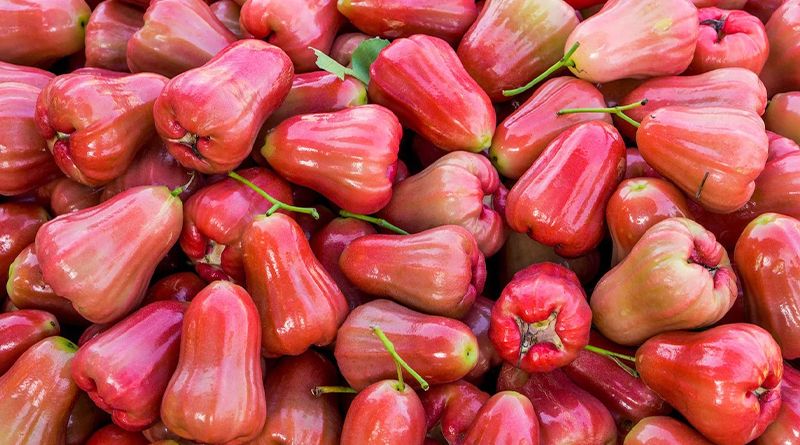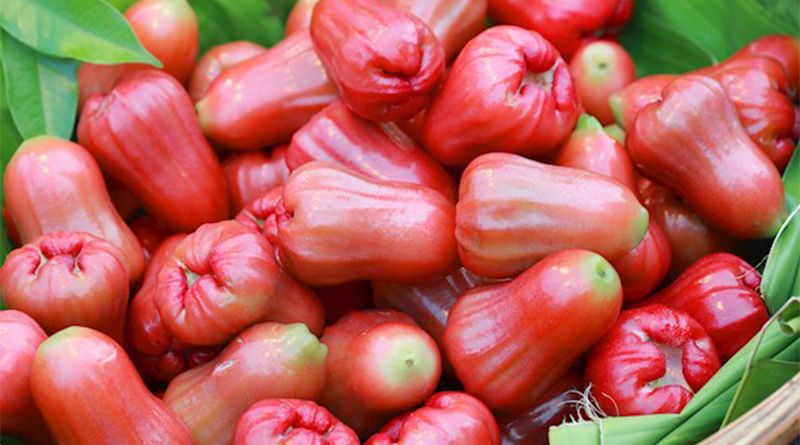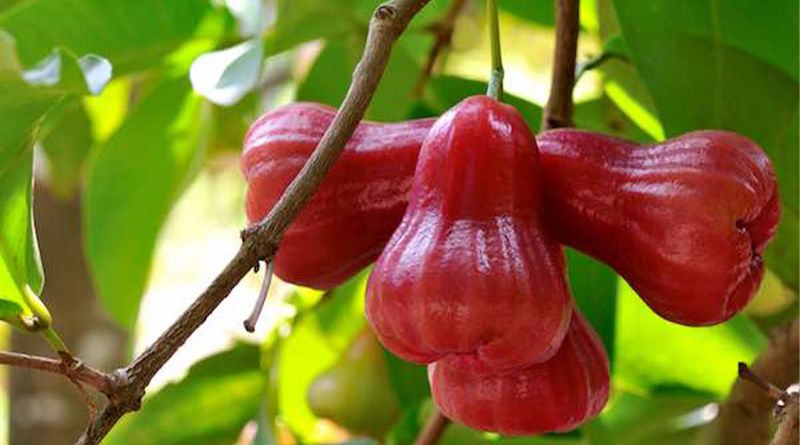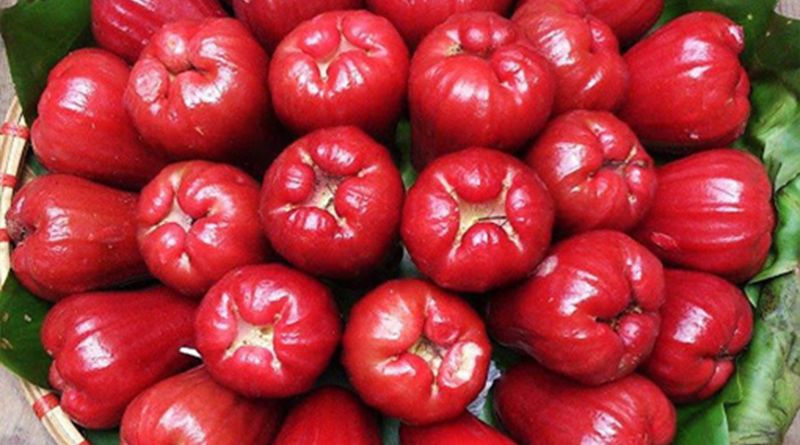ROSE APPLE
A rose apple is a common fruit in Southeast Asia, it has been cultivated for thousands years. The shape of the rose apple is reminiscent of bell pepper though it narrows and more at the bottom. It’s small and only about 5cm long. The skin color of the fruit can be paled red, greenish-white, or cream-colored. The skin is thin and waxy. Inside the white flesh is spongy and is dry, but can be juicy and crispy depending on the variety. Despite what the name implies, rose apples do not taste like apples. Hey have got a mild, watery sweetness, although them and they can be bland or sour at times.
 Passport
Passport
 How to eat
How to eat
Rose apple are eaten fresh by slicing them into small slices or make a desert such as jelly, juice, sauces and wine. The fruit can be an addition to salads, can be pickled, and be used as a food decoration.
 Health benefit
Health benefit
-Boosts Immune System: The rose apple is rich in vitamin C which helps prevent the damaging effects of free radicals, pollutants, and harmful chemicals that lead to health ailments like heart disease, cancer and arthritis.
educes risk of stroke: Vitamin C in rose apple helps reduce the risk of stroke and health conditions like inflammation, oxidative damage, heart health, atherosclerosis, blood pressure, and endothelial health.
Good for the Digestive System: Rose apple is rich in fiber, which helps protect against common digestive problems like diarrhea and bloating, and on top of that, helps with weight management.
Prevents Muscle Cramps: Rose Apple also possesses a good amount of potassium, which helps to increase muscle strength and relieve muscle cramps.
 Export Overview
Export Overview
Vietnam ranks 111th in the world production of mangosteen, and the fruit is one of the majorly produced in the country. As of 2021, Vietnam is the 6th biggest exporter of mangosteen in the world. Vietnam’s main market to export mango includes China, Russia, UAE, The United States, ...
 What’s FOSACHA
What’s FOSACHA
FOSACHA offers the two most popular, most favored varieties by the general public to the global market.
FOSACHA procures our product directly from the farms of our supply chain, The Vietnamese mango was cultivated and cared for by our experienced and dedicated farmers. Most importantly, the product must be VietGAP, GlobalGAP-compliant, able to meet the standards of food hygiene and safety, as well as be of clear origin to be traceable. Our quality personnel test the product on the parameters of taste and freshness during the procurement and also makes sure that the packaging is also being done properly, as per international standards
If you are looking for a reputable supplier to import high-quality, VietGAP, GlobalGAP compliant Vietnamese mango, as well as establish a long-term, mutually beneficial partnership, please contact us for further discussion.
 Storage advice
Storage advice
Stored in a cool, dry place at 0 to 2°C (Fresh) and at -20 ±2°C (Frozen)
 Availability
Availability












